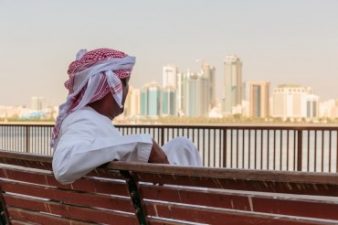 We speak to Egyptian campaigner Sarah Rifaat about the environmental movement and why bureaucracy and corruption are still the biggest barriers to change in Egypt
We speak to Egyptian campaigner Sarah Rifaat about the environmental movement and why bureaucracy and corruption are still the biggest barriers to change in Egypt
Sarah Rifaat, like many people in Egypt, suffered from childhood asthma caused by the high levels of pollution in her city. What Sarah did differently when she grew up however, is refuse to accept this as the norm. Sarah’s asthma was her first lesson in the importance of a healthy and sustainable lifestyle which led her down the path of environmental campaigning. Today, she works with 350.org as the Arab world co-ordinator and is also part of a new Arab Youth Climate Movement. I caught up with Sarah to find out more about her work and what she would change if she was Egyptian president for a day.
Tell us a little about yourself and how you got involved in the climate change movement?
I’ve always had a passion for environmental conservation ever since I was a young girl. I can attribute that to specific moments in my life, such as the time when my grandfather taught me to name flowers in his garden, or when I used to watch Captain Planet. All these moments made me feel that I had a responsibility towards the world around me.
In college I studied mass communication and wanted to be a graphic designer, but I took a course on Environmental Issues and used my design skills for environmental awareness initiatives. After I graduated I volunteered to facilitate workshops for children at the World Environment Day celebration which is held in Cairo every year. I tried to lead a more environmentally conscious existence, but an activist I was not, climate or otherwise. That all changed in 2009 when I got an email inviting me to go to a 3-week climate advocacy workshop organized by 350.org and IndyACT in Turkey.
I and 20 other young Arabs went on a sponsored trip to Turkey to learn about climate change and also about using the tools of art and media for climate advocacy. We were there with participants from 39 other countries to learn about how to organize for the first 350 global day of action on October 24th. I’ve been part of the movement ever since as a volunteer field organizer till 2011, when I assumed the role of the 350 Arab world coordinator.
So you’ve been involved in the 350.org campaign for a couple of years now. Can you tell us about what you feel the campaign has achieved in Egypt so far?
I feel that the campaign has managed to involve more Egyptian youth in climate activism and organizing, as well as link climate change to local issues such as sustainable transportation. The campaign has also managed to encourage local collaboration between different groups and NGOs.
What changes have you noticed in the environmental movement in Egypt over the last 5 to 10 years?
The environmental movement has become more developed and more widespread than ever before – especially among youth. There’s a lot more recognition now of the link between environmental issues and social justice issues, which has led many groups that haven’t been involved in environmental activism to join forces with environmentalists.
I understand you were also part of a recent campaign to setup a Arab Youth Climate Movement. How did the meeting go and what can we expect next?
The workshop was about uniting youth climate activists from around the Arab World, with the aim of launching a strong regional youth network on climate. The activists came from 14 different Arab countries and got a chance to jointly discuss global and regional climate politics and acquire organizing skills, such as activists story-sharing, action planning and campaigning. In addition we also managed to bond as a team and formulate a common vision for the regional network. The AYCM is now focused on organizing the first Arab Day on Climate Action on November 3rd and is gearing up for participation at the Conference of Youth and COP18 in Qatar later this year.
 What do you think are the unique barriers that Egypt faces in terms of tackling its environmental issues?
What do you think are the unique barriers that Egypt faces in terms of tackling its environmental issues?
Corruption, outdated policies, vested interests and extremely bureaucratic governmental institutions are the biggest barriers for many environmentalist. There are those who might argue that lack of mass awareness on some issues is a barrier, and while that is true in some cases, the events of last year have proved that you only need a dedicated few to bring about massive change. However, in order for us to create lasting change, we need to transform the systems and institutions that have long kept the status quo.
What one thing would you change if you were leader of Egypt for the day?
I would create more open and intuitive channels of communication between government and civil society and try to launch some process by which governmental planning is truly inclusive, transparent and decentralized.
:: Images courtesy of Sarah Rifaat and 350.org
For more on Egypt’s environmental movement see:
Frack Off Shell! Egyptians Launch Anti-Fracking Campaign
Recycle Art Workshops @Darb 1718 this October
Sun, Soak and Dive Holidays in Sinai’s Sharm El Sheikh



